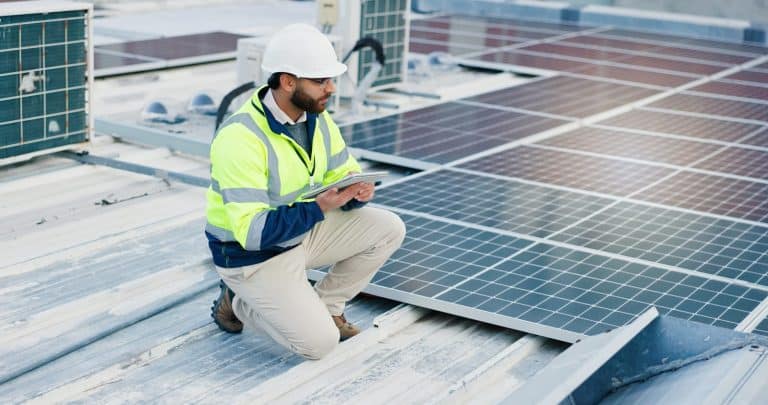The adoption of renewable energy solutions, such as solar power, is rapidly growing among commercial businesses in Zambia. This shift helps reduce operational costs and minimizes their carbon footprint. One critical aspect of implementing a commercial solar panel system, particularly a grid-tied system, is ensuring that your existing electrical infrastructure can support the new installation. This often involves upgrading the electrical panel to meet the new demands.
What Grid-Tied Solar System Solutions Offer for Commercial Projects in Zambia
A grid-tied solar system is a popular choice among commercial enterprises in Zambia. These systems are designed to connect directly to the local utility grid, enabling businesses to use solar energy when the sun is shining and draw from the grid when it’s not. Key benefits of grid-tied systems include reduced electricity bills, the ability to sell excess energy back to the grid (net metering), and lower installation costs compared to off-grid systems. Grid-tied systems provide a seamless transition to renewable energy while ensuring a consistent and reliable energy supply.
What is the Necessity of Electrical Panel Upgrades for Commercial Installations?
Many existing electrical panels in Zambia may not be equipped to handle the additional load imposed by a solar system, especially in older buildings or those that have undergone electrical updates over time. For a grid-tied solar system to work efficiently, the electrical panel plays a crucial role in the smooth operation and safe distribution of solar energy. Upgrading the electrical panel ensures that the solar installation can operate effectively while maintaining energy efficiency and safety.
Signs a Commercial Electrical Panel Upgrade for Solar Panel Installation is Required
Insufficient Amp Capacity
Current Demand Exceeds Capacity: If your current electrical panel is less than 200 amps and the combined load of your existing and new systems (including solar) exceeds its capacity, an upgrade is likely needed.
Frequent Breaker Trips: If circuit breakers are frequently tripping, it may indicate that your system is overloaded. This issue can become more prominent with the addition of a solar infrastructure.
Age of the Electrical Panel
Obsolete Model: Electrical panels older than 25-30 years may not support modern energy demands and could struggle with additional inputs from a solar installation.
Outdated Technology: Older electrical panels may not be compatible with modern solar technology or capable of supporting smart energy management systems.
Space Limitations
No Room for Expansion: If your electrical panel is already full and there’s no space for additional breakers, you will need an upgrade to accommodate the circuits needed for the solar system.
Dual Bus Bars Needed: Some solar systems require dual bus bars, which older panels may not support.
Safety Concerns
Visible Damage: If your electrical panel shows signs of rust, corrosion, or burn marks, this indicates it’s time for an upgrade for safety reasons.
Overheating Issues: If the panel or surrounding areas feel excessively hot, it could be a sign of an overloaded system or faulty wiring, which requires immediate attention.
Before proceeding with a commercial solar panel installation, it’s crucial to evaluate the capacity and condition of your existing electrical panel. Consulting with one of JZ Electric’s licensed electricians will help determine whether an upgrade is necessary, ensuring that your solar investment is both efficient and safe.
JZ Electric – Electrical Contractor for Commercial Solar Panel Installation in Zambia
Ready to ensure your electrical panel can handle the demands of your solar installation? At JZ Electric, our licensed electricians can evaluate your existing electrical infrastructure and determine if an upgrade is required for your grid-tied solar system. Don’t let outdated panels stand in your way – contact us today to schedule a consultation and begin your journey toward sustainable energy for your business in Zambia!



